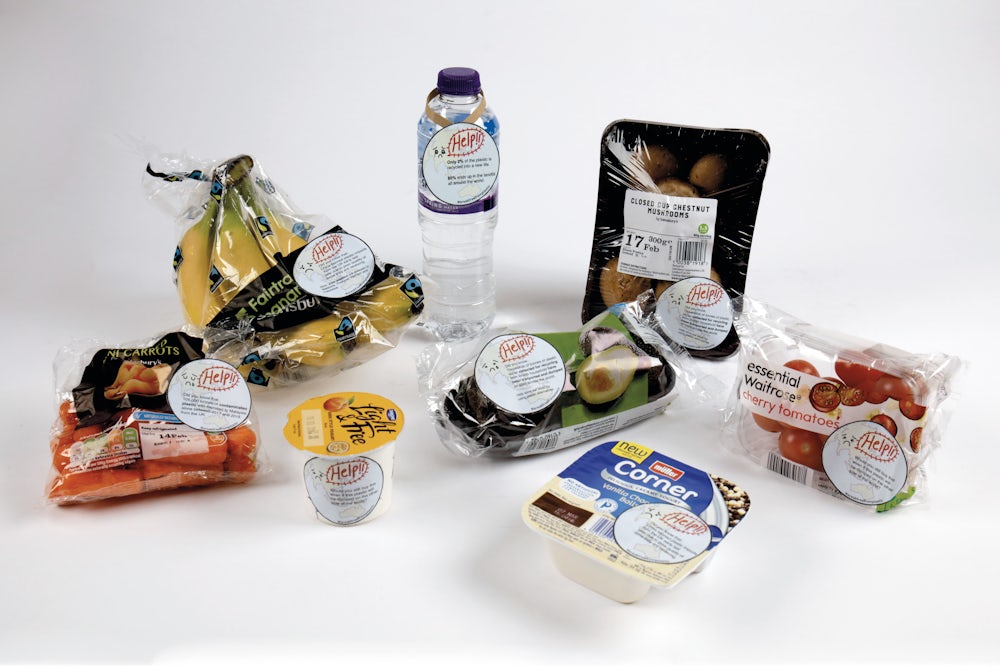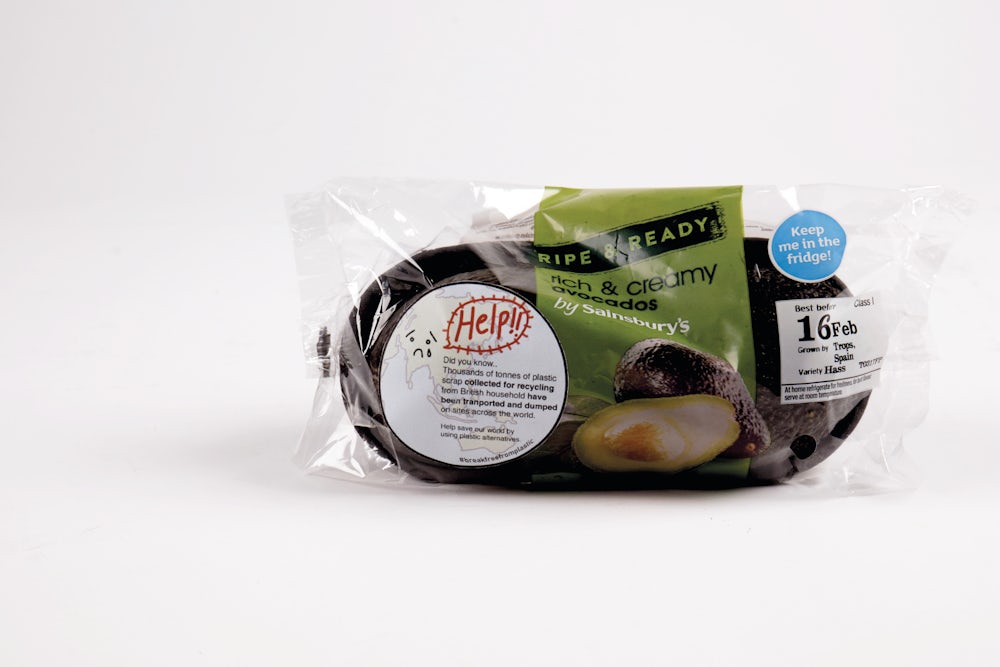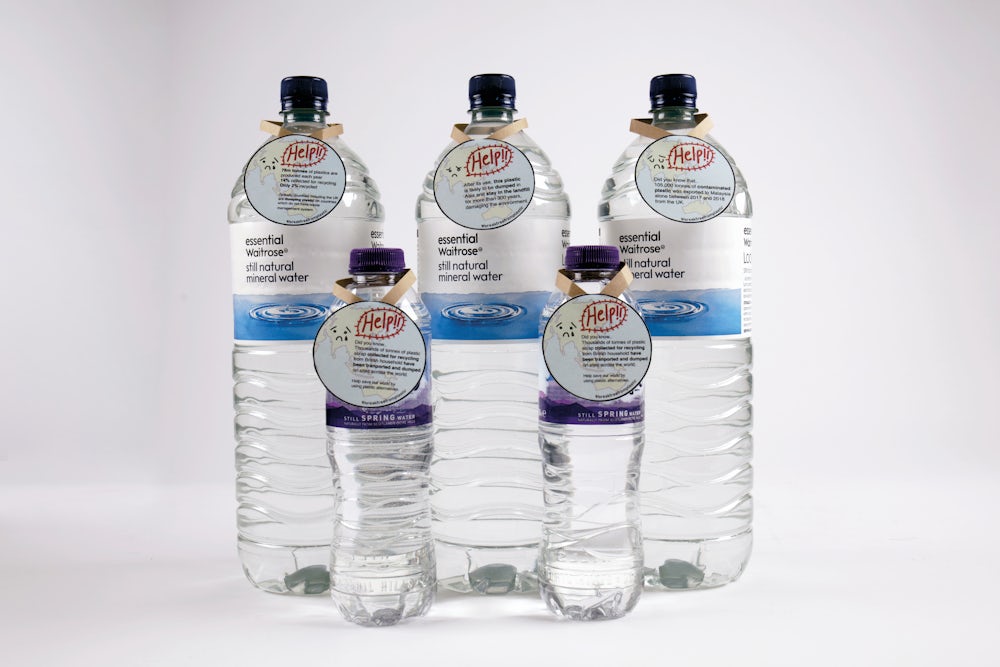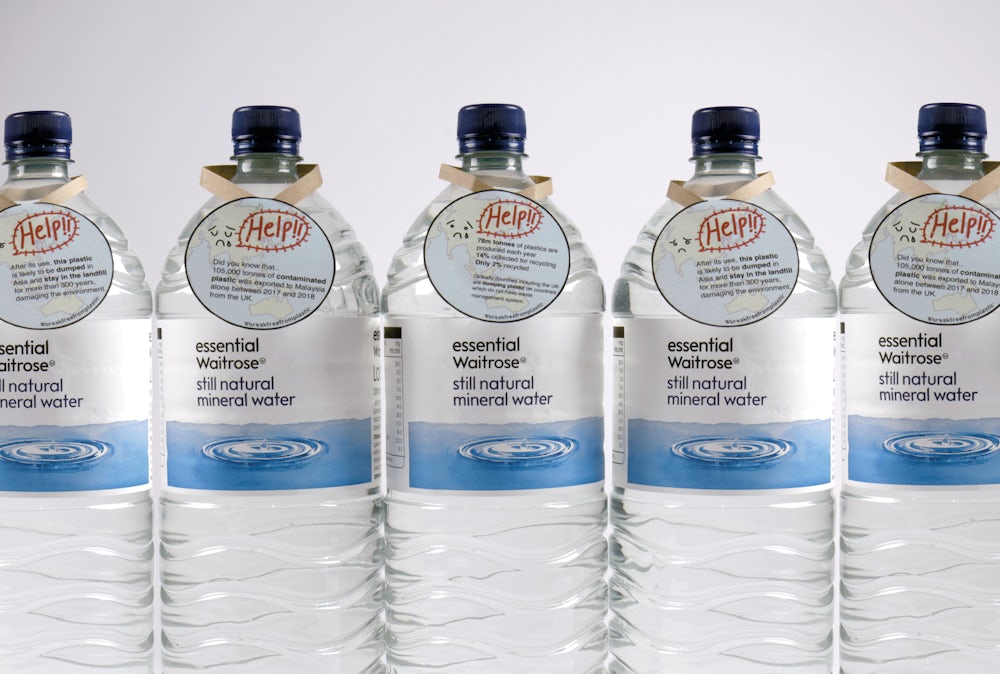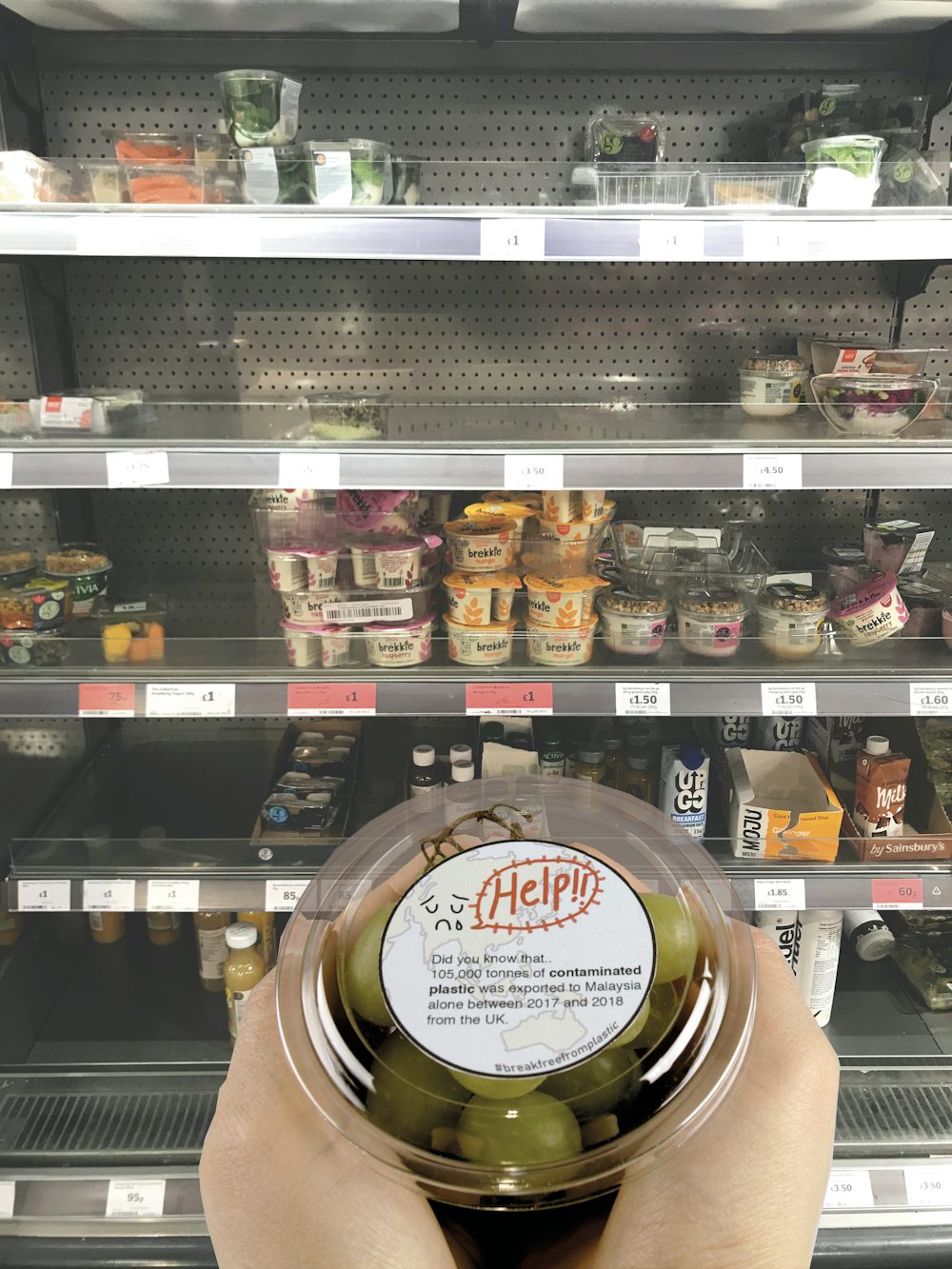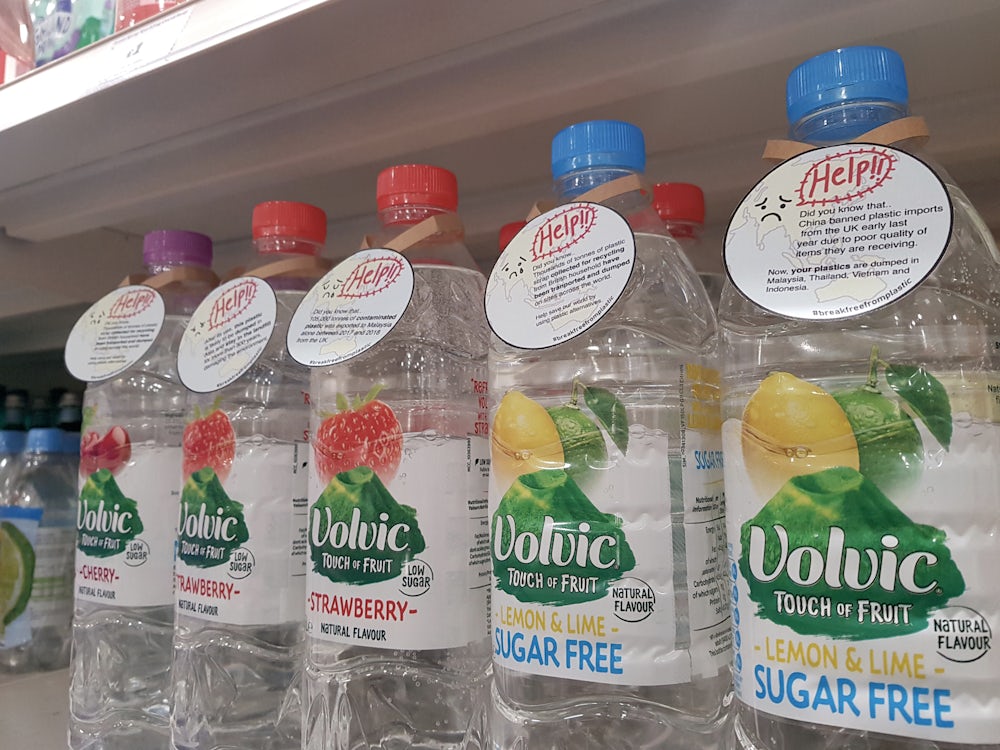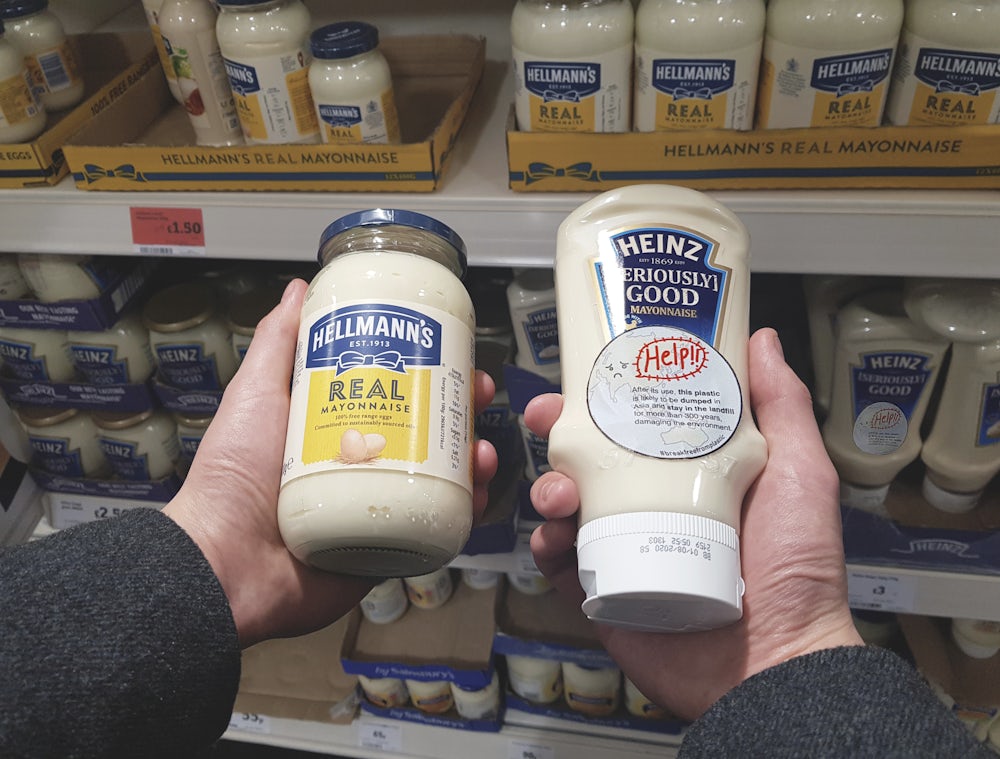Nonbiodegradable plastics produced through burning fossil fuels are a prominent cause of environmental and marine pollution, posing a great danger to both human and animal life. The adverse impact of plastic on our planet is well documented, yet retail giants continue to use plastic as a primary packaging material due to its cheap production costs, durability and convenience.1
People have been ‘greenwashed’ into believing that their waste will be recycled and get a new life, as long as they put it in an appropriate recycling bin. However, the truth is that thousands of tonnes of plastic waste collected for recycling from British households are shipped and dumped in landfills across the world. China, the global recycling hub, receives 56% (by weight) of waste plastic imports worldwide.2 Yet, early last year, China shut its door. They refused to import plastic waste from other countries due to poor quality of the items they were receiving, which made the recycling process economically undesirable and labour-intensive.3 In addition, landfills and oceans have become destinations for plastic waste, with approximately 10-20 million tonnes of scraps flowing into our oceans each year.4
In my project, I aimed to develop a tool that will allow me to mediate these issues to the public. The objective is not limited to raising awareness; it also seeks to provoke actions and mobilise people. Instead of developing an artwork that people can only enjoy from distance, I want my project to be dissolved into people’s daily lives and influence their perceptions and decisions with the type of products they purchase.
A recent study by the University of Stirling suggests that printing ‘smoking kills’ on individual cigarettes along with worrying and unappealing images on packets could help further reduce the number of smokers.5 I believe this strategy can be applied to plastic. In this project, I am going to design and develop an informative, eye-catching and simple sticker that can be put on plastic packaging which I hope to stir this movement.
The Centre for Biological Diversity. “10 Facts About Single-Use Plastic Bags.”, (Accessed Feb 9, 2020). ↩
Velis, Costas. “Global Recycling Markets: Plastic Waste. A Story for One Player – China”. ISWA Globalisation and Waste Management Task Force, 2014, (Accessed Feb 9, 2020). ↩
Marris,Sharon. “Recycling options dwindle for councils hit by China ban.” Sky News, Oct 19, 2019, (Accessed Feb 9, 2020). ↩
UNEP. “Valuing Plastics: The Business Case for Measuring, Managing and Disclosing Plastic Use in the Consumer Goods Industry,” Nairobi: 2014. ↩
BBC. “Can stamping ‘smoking kills’ on cigarettes help more people quit?”, (Accessed Feb 9, 2020). ↩
